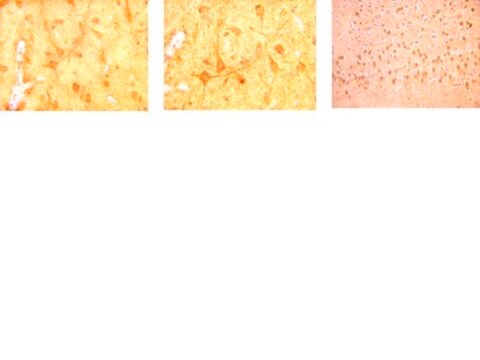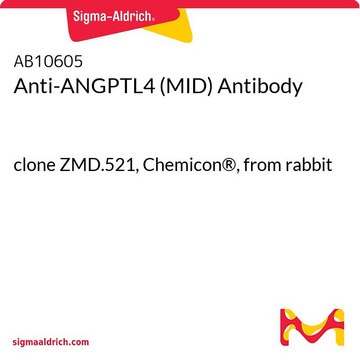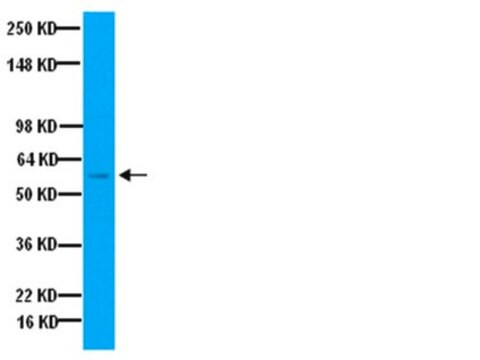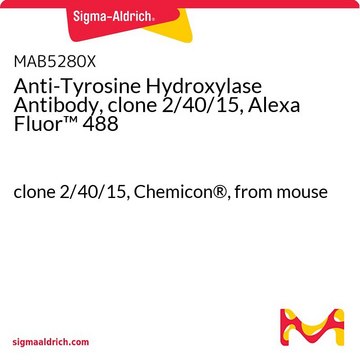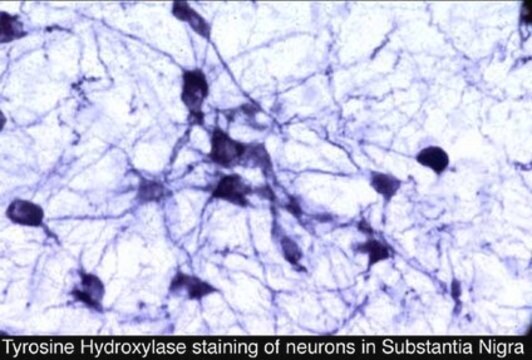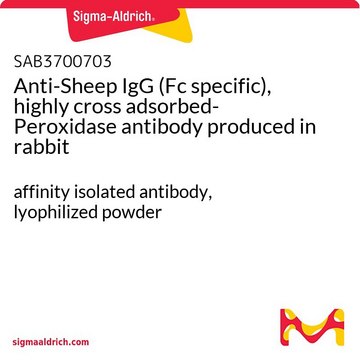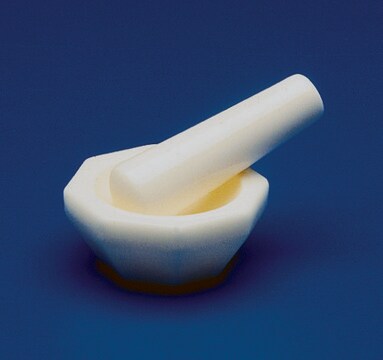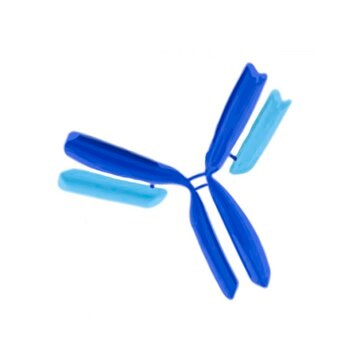AB5986P
Anti-Tyrosine Hydroxylase Antibody
CHEMICON®, rabbit polyclonal
Sinonimo/i:
TH, Tyrosine Monooxygenase
About This Item
Prodotti consigliati
Nome del prodotto
Anti-Tyrosine Hydroxylase Antibody, Chemicon®, from rabbit
Origine biologica
rabbit
Livello qualitativo
Forma dell’anticorpo
affinity purified immunoglobulin
Tipo di anticorpo
primary antibodies
Clone
polyclonal
Purificato mediante
affinity chromatography
Reattività contro le specie
rat
Produttore/marchio commerciale
Chemicon®
tecniche
immunohistochemistry: suitable
N° accesso NCBI
N° accesso UniProt
Condizioni di spedizione
dry ice
modifica post-traduzionali bersaglio
unmodified
Informazioni sul gene
human ... TH(7054)
Specificità
Immunogeno
Applicazioni
Optimal working dilutions must be determined by end user.
Neuroscience
Neurotransmitters & Receptors
Neuronal & Glial Markers
Stato fisico
Note legali
Esclusione di responsabilità
Non trovi il prodotto giusto?
Prova il nostro Motore di ricerca dei prodotti.
Raccomandato
Codice della classe di stoccaggio
11 - Combustible Solids
Classe di pericolosità dell'acqua (WGK)
WGK 3
Punto d’infiammabilità (°F)
Not applicable
Punto d’infiammabilità (°C)
Not applicable
Certificati d'analisi (COA)
Cerca il Certificati d'analisi (COA) digitando il numero di lotto/batch corrispondente. I numeri di lotto o di batch sono stampati sull'etichetta dei prodotti dopo la parola ‘Lotto’ o ‘Batch’.
Possiedi già questo prodotto?
I documenti relativi ai prodotti acquistati recentemente sono disponibili nell’Archivio dei documenti.
Il team dei nostri ricercatori vanta grande esperienza in tutte le aree della ricerca quali Life Science, scienza dei materiali, sintesi chimica, cromatografia, discipline analitiche, ecc..
Contatta l'Assistenza Tecnica.